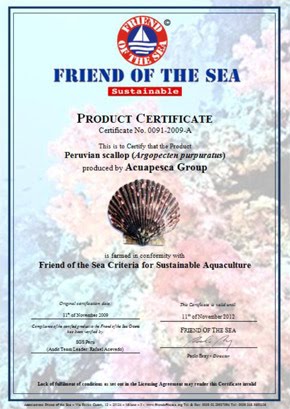
In recent years, there has been a growing awareness of the importance of sustainable practices in various industries, particularly in the realm of seafood production. With concerns about overfishing, habitat destruction, and the depletion of marine resources, consumers and businesses alike are seeking ways to ensure that the seafood they consume and sell is sourced responsibly. One prominent certification that helps in this endeavour is the Friend of the Sea certification. In this article, we’ll explore what Friend of the Sea certification entails and how businesses can obtain it to promote sustainable seafood practices.
Understanding Friend of the Sea Certification
Friend of the Sea is a leading international certification program for products from sustainable fisheries and aquaculture. Established in 2006 by the World Sustainability Organization, Friend of the Sea certification aims to promote sustainable practices in the seafood industry while also raising consumer awareness about the importance of choosing sustainably sourced seafood.
The certification process involves rigorous assessment criteria that evaluate various aspects of fisheries and aquaculture operations. These criteria include:
1. Sustainable Fishing Practices:
Friend of the Sea certification requires that fisheries adhere to sustainable fishing methods that minimize bycatch and avoid overexploitation of fish stocks. This includes using selective fishing gear and implementing measures to protect vulnerable species and habitats.
2. Traceability and Transparency:
Certified fisheries and aquaculture operations must have robust traceability systems in place to track the journey of seafood products from the source to the consumer. This ensures transparency and accountability throughout the supply chain.
3. Environmental Impact:
Friend of the Sea considers the environmental impact of fisheries and aquaculture activities, including their carbon footprint, energy efficiency, and waste management practices. Certified operations are required to implement measures to mitigate their environmental impact and promote ecosystem health.
4. Compliance with Regulations:
Certified fisheries and aquaculture operations must comply with relevant national and international regulations governing seafood production. This includes adherence to quotas, fishing seasons, and other management measures aimed at preserving marine resources.
5. Social Responsibility:
Friend of the Sea certification also emphasizes social responsibility within the seafood industry, including fair labour practices, worker safety, and community engagement initiatives.
How to Obtain Friend of the Sea Certification
For businesses involved in seafood production, obtaining Friend of the Sea certification can be a valuable investment in sustainability and market competitiveness. The certification process typically involves the following steps:
1. Pre-Assessment:
Before applying for certification, businesses may undergo a pre-assessment to evaluate their readiness and identify areas for improvement. This may involve a review of existing practices, documentation, and infrastructure.
2. Application:
Once ready, businesses can apply for Friend of the Sea certification. The application includes detailed information about the business operations, including fishing or aquaculture methods, species targeted, and supply chain management practices.
3. On-Site Audit:
Friend of the Sea certification involves an on-site audit conducted by qualified auditors. During the audit, auditors assess compliance with the certification criteria, inspect facilities, and review documentation to verify the sustainability of the operations.
4. Certification Decision:
Based on the findings of the audit, the certification body decides on certification. If the business meets the required standards, it is awarded Friend of the Sea certification and granted permission to use the certification logo on its products and promotional materials.
5. Ongoing Compliance:
Certified businesses are required to maintain ongoing compliance with the certification standards. This may involve regular audits, reporting requirements, and continuous improvement efforts to address any identified issues or areas for enhancement.
Benefits of Friend of the Sea Certification
Obtaining Friend of the Sea certification offers numerous benefits for businesses involved in seafood production, including:
1. Market Access:
Friend of the Sea certification provides businesses with access to new markets and consumers who prioritize sustainability when making purchasing decisions.
2. Enhanced Reputation:
Certified businesses can enhance their reputation as leaders in sustainable seafood production, earning the trust and loyalty of environmentally conscious consumers.
3. Competitive Advantage:
Friend of the Sea certification gives businesses a competitive advantage in the marketplace, distinguishing their products from those that lack credible sustainability credentials.
4. Environmental Stewardship:
By obtaining Friend of the Sea certification, businesses demonstrate their commitment to environmental stewardship and responsible resource management, contributing to the long-term health of marine ecosystems.
In conclusion, Friend of the Sea certification is a valuable tool for promoting sustainable seafood practices and ensuring the long-term viability of marine resources. By adhering to rigorous standards and undergoing certification, businesses can play a vital role in preserving the health and biodiversity of our oceans while also meeting the growing demand for sustainable seafood.








